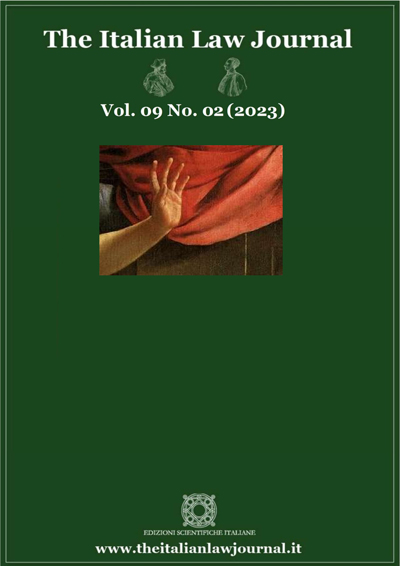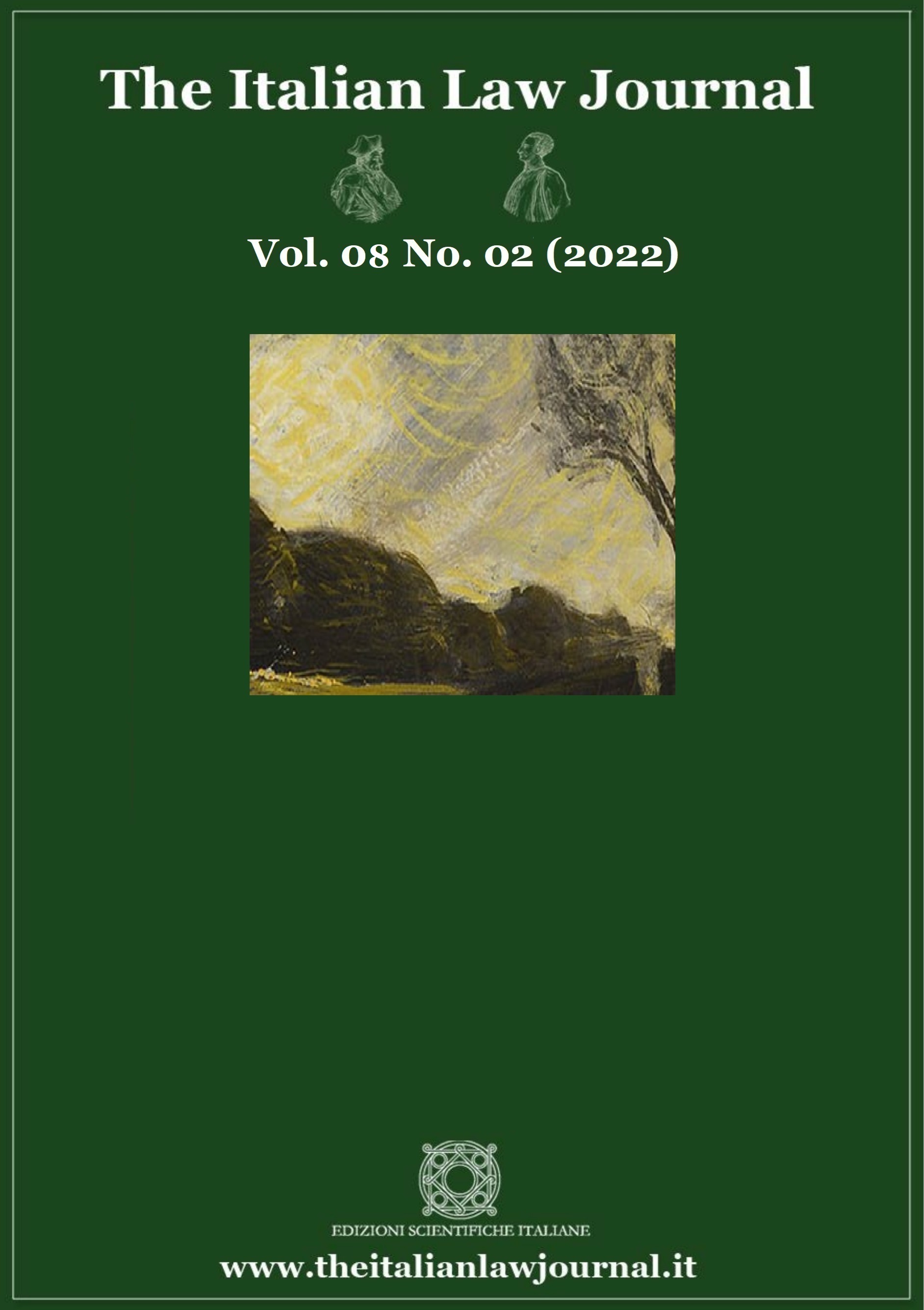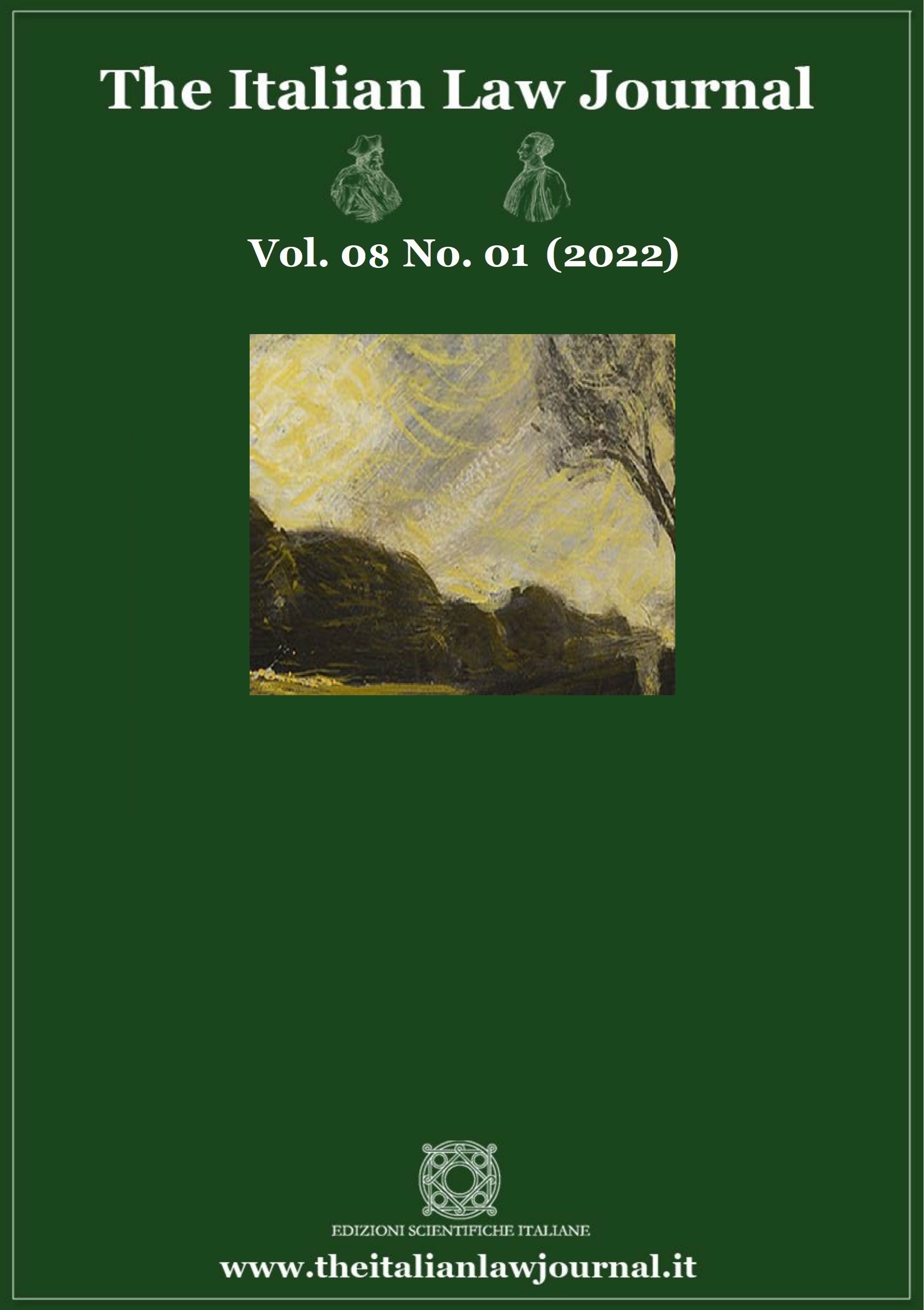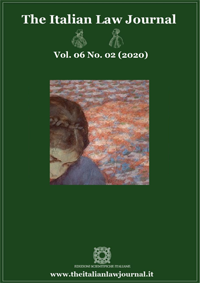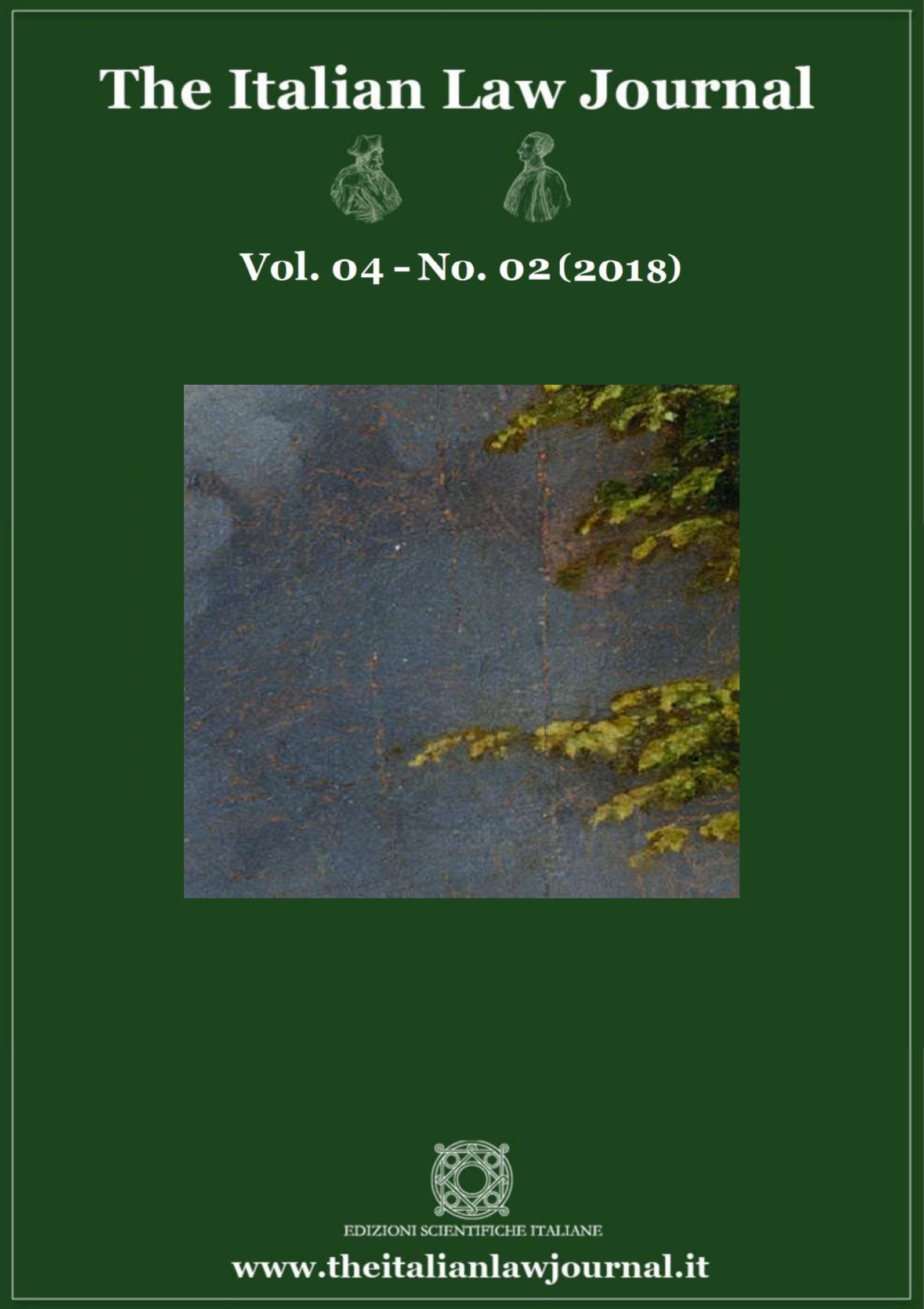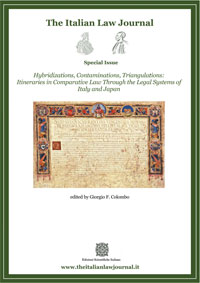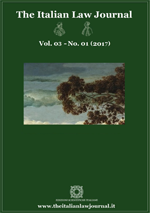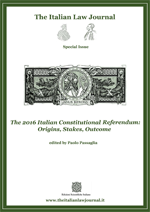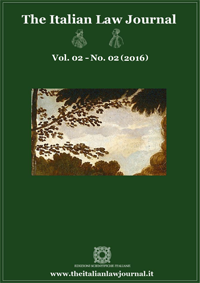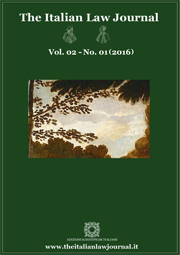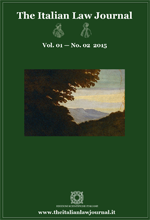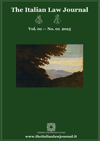5 THE ITALIAN LAW JOURNAL NO. 2 (2019) Political Conflicts and the Transformation of Legal Orders. Phenomenological Insights on Democratic Contingency and Transgression by Ferdinando G. Menga This paper illustrates the tortuous path that many years ago (October 1989) led to the entry into force of a new Code of Criminal Procedure in Italy. The idea that this reform was inspired by adversary experiences gained in the Anglo-American legal systems is widespread. The opinion finds only partial confirmation in the events that have conditioned the preparation of the ‘first code of republican Italy’. Considerable weight on the contents of the procedural reform – have actually been the decisions of the Italian Constitutional Court, the heated doctrinal debates already started since the 1960s of the last century and the culture of comparison, not only with the Anglo-American legal systems. The author explains shortly thBy deploying phenomenological categories mainly introduced by the German philosopher Bernhard Waldenfels, in this paper I seek to offer an analysis as to how contingency should be understood in order to adopt an adequate model for a democratic transgression of legal orders. To reach this interpretive goal, I articulate my argument along the following trajectory: Taking a cue from the current influential theory of a democratic agonism developed by Chantal Mouffe, I argue that a conflictual design of politics based on the appropriation of Schmitt’s absolutistic depiction of antagonism does not offer an apt account of radical democratic contingency and conflict. Consequently, a more appropriate configuration of a politico-legal transgression is required, such that it can be capable of expressing strong manifestations of conflict and transformative impulses, on the one hand, without collapsing into exorbitant configurations thereof, on the other. In the last section of the paper I submit that such an account of a politico-legal transgression is possible by dint of combining Hannah Arendt’s notion of natality and Hans Lindahl’s insights on a-legality.e difficulties encountered in drafting the procedural reform and in its implementation over the course of thirty years. DOI 10.23815/2421-2156.ITALJ ISSN 2421-2156








